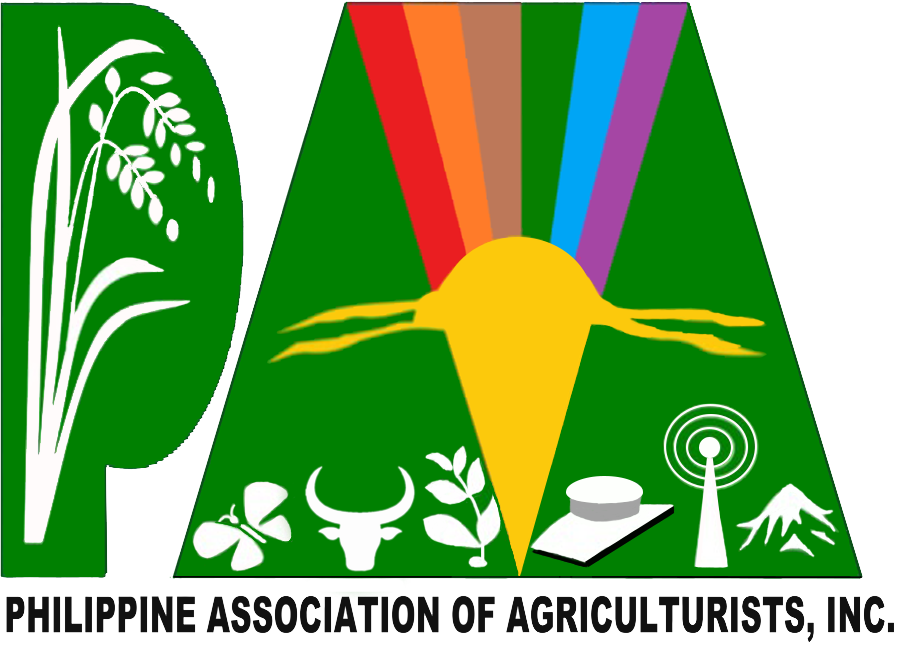Academic Sector Joins Review and Discussion on RA 12215
The academic sector plays a vital role in shaping the future of the agriculture workforce, which is primarily the goal of the enactment of RA 12215 or the Philippine Agriculturists Act.
To ensure that provisions in the Implementing Rules and Regulations (IRR) aligns with the delivery of courses in the academe and to recognize the roles and needs of Registered Agriculturist in providing quality education, the joint Technical Working Group (TWG) from the Professional Regulation Commission - Professional Regulatory Board of Agriculture (PRB Agriculture) and the Philippine Association of Agriculturists, Inc. (PAA) conducted a consultation meeting with State Universities and Colleges-Association of Colleges of Agriculture in the Philippines, Inc. (SUC-ACAP) members on July 16, 2025 via Zoom.
The meeting was attended by Dr. Prose Ivy Guasa Yepes, President of SUC-ACAP, with approximately 80 participants from various SUCs. Dr. Emma K. Sales, Chair of the PRB in Agriculture, delivered the Opening Remarks, and Dr. Karen S. Bautista, the PAA Immediate Past President and Chair of Policy Advocacy Committee, presented the draft IRR of RA 12215. An open forum was held after the presentation, where the TWG addressed questions and concerns of the participants. The meeting was productive, and various insightful suggestions were taken during the consultation, summarized as follows:
• 𝐒𝐩𝐞𝐜𝐢𝐟𝐲 𝐭𝐡𝐞 𝐟𝐨𝐮𝐧𝐝𝐚𝐭𝐢𝐨𝐧/𝐜𝐨𝐫𝐞 𝐚𝐧𝐝 𝐦𝐚𝐣𝐨𝐫 𝐚𝐠𝐫𝐢𝐜𝐮𝐥𝐭𝐮𝐫𝐚𝐥 𝐜𝐨𝐮𝐫𝐬𝐞𝐬 𝐭𝐨 𝐛𝐞 𝐭𝐚𝐮𝐠𝐡𝐭 𝐛𝐲 𝐑𝐞𝐠𝐢𝐬𝐭𝐞𝐫𝐞𝐝 𝐀𝐠𝐫𝐢𝐜𝐮𝐥𝐭𝐮𝐫𝐢𝐬𝐭𝐬 in the IRR. There is also a need to clarify and delineate the core and major courses from highly specialized courses. A suggestion that Highly Specialized Courses be taught by non-registered agriculturists to accommodate faculty who have attained advanced degrees locally and internationally and have expertise in the field. These suggestions will be discussed during the CHED consultation.
• The 𝐫𝐞𝐟𝐫𝐞𝐬𝐡𝐞𝐫 𝐜𝐨𝐮𝐫𝐬𝐞𝐬 𝐬𝐭𝐚𝐭𝐞𝐝 𝐢𝐧 𝐭𝐡𝐞 𝐩𝐫𝐨𝐯𝐢𝐬𝐢𝐨𝐧 𝐰𝐢𝐥𝐥 𝐛𝐞 𝐨𝐟𝐟𝐞𝐫𝐞𝐝 𝐛𝐲 𝐂𝐇𝐄𝐃-𝐚𝐜𝐜𝐫𝐞𝐝𝐢𝐭𝐞𝐝 𝐇𝐢𝐠𝐡𝐞𝐫 𝐄𝐝𝐮𝐜𝐚𝐭𝐢𝐨𝐧 𝐈𝐧𝐬𝐭𝐢𝐭𝐮𝐭𝐢𝐨𝐧𝐬 (𝐇𝐄𝐈𝐬) regardless of their categories (COE, COD, etc.).
• A suggestion to 𝐚𝐝𝐝 𝐚𝐧𝐨𝐭𝐡𝐞𝐫 𝐭𝐡𝐫𝐞𝐞 (𝟑) 𝐮𝐧𝐢𝐭𝐬 𝐟𝐨𝐫 𝐒𝐨𝐢𝐥 𝐒𝐜𝐢𝐞𝐧𝐜𝐞 as one of the foundation courses has been recognized. The matter is still for deliberation of TWG, considering also that these will be added to the 27 units which the non-agriculture graduates are required to take to qualify for the licensure exam.
• Addressing the concerns of the participants on encouraging scientists and professionals from other fields to contribute to agriculture, particularly research, the TWG stressed that 𝐭𝐡𝐞 𝐥𝐚𝐰 𝐝𝐨𝐞𝐬 𝐧𝐨𝐭 𝐡𝐢𝐧𝐝𝐞𝐫 𝐨𝐭𝐡𝐞𝐫 𝐩𝐫𝐨𝐟𝐞𝐬𝐬𝐢𝐨𝐧𝐚𝐥𝐬 𝐭𝐨 𝐜𝐨𝐧𝐭𝐫𝐢𝐛𝐮𝐭𝐞 𝐚𝐧𝐝 𝐛𝐞 𝐩𝐚𝐫𝐭 𝐨𝐟 𝐭𝐡𝐞 𝐫𝐞𝐬𝐞𝐚𝐫𝐜𝐡 𝐭𝐞𝐚𝐦𝐬. 𝐈𝐭 𝐨𝐧𝐥𝐲 𝐫𝐞𝐪𝐮𝐢𝐫𝐞𝐬 𝐭𝐡𝐚𝐭 𝐟𝐨𝐫 𝐚𝐠𝐫𝐢𝐜𝐮𝐥𝐭𝐮𝐫𝐞-𝐫𝐞𝐥𝐚𝐭𝐞𝐝 𝐫𝐞𝐬𝐞𝐚𝐫𝐜𝐡 𝐩𝐫𝐨𝐠𝐫𝐚𝐦/𝐩𝐫𝐨𝐣𝐞𝐜𝐭/𝐬𝐭𝐮𝐝𝐲, 𝐭𝐡𝐞𝐫𝐞 𝐬𝐡𝐨𝐮𝐥𝐝 𝐛𝐞 𝐚 𝐑𝐞𝐠𝐢𝐬𝐭𝐞𝐫𝐞𝐝 𝐀𝐠𝐫𝐢𝐜𝐮𝐥𝐭𝐮𝐫𝐢𝐬𝐭 𝐦𝐞𝐦𝐛𝐞𝐫 𝐭𝐨 𝐞𝐧𝐬𝐮𝐫𝐞 𝐚𝐜𝐜𝐮𝐫𝐚𝐜𝐲 𝐨𝐟 𝐭𝐞𝐜𝐡𝐧𝐢𝐜𝐚𝐥 𝐚𝐬𝐩𝐞𝐜𝐭𝐬. Further, the suggestion to include PhD by research as one of the pathways for Registration without examination has been noted and for deliberation by the TWG.
• A suggestion to add a provision in the IRR for non-teaching agriculturists in SUCs, given that in the existing draft, the provisions are only pertaining to the teaching staff/faculty members.
Notably, one of the major concerns of the SUCs is the differences in the entry Salary Grade for plantilla positions in the government and SUCs, but the faculty members are required to have an MS degree educational qualification, unlike in the government, wherein only BS degree is required, particularly if the position falls under the practice of a profession. This situation causes fear that faculty members will transfer to the government, threatening the supply of teachers in the academe.
These concerns have been noted by the TWG, ensuring that the matters will be brought to the attention of CHED during the consultation meeting and be deliberated after consolidating inputs from other key stakeholders. The program concluded with a synthesis by Mr. Arthur Baria, member of TWG, and a closing message from Dr. Fernando Sanchez, Jr., National President of the PAA.






